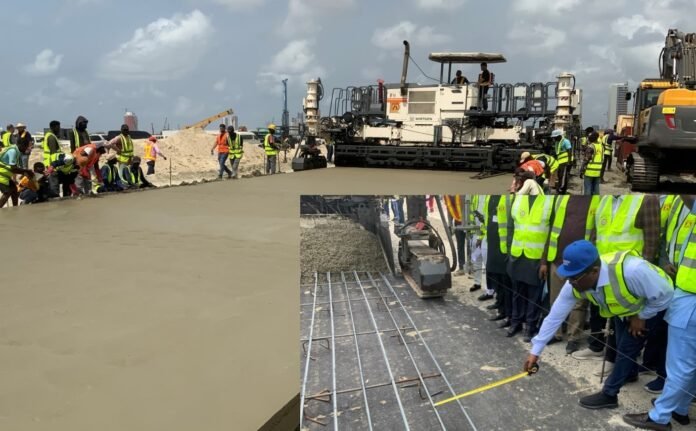The Federal Government has announced that motorists will begin using the completed portion of Section 1 of the Lagos–Calabar Coastal Highway between December 12 and 17.
The formal commissioning of the section is scheduled for April 2026, with about two kilometers left to be fully completed.
Minister of Works, Engr. David Umahi, disclosed this on Sunday during an inspection tour of the sprawling project.
He covered 47.37 kilometers of the highway, which stretches 700 kilometers from Victoria Island in Lagos to Calabar in Cross River State.
Engineering Progress and Investor Confidence
Speaking with journalists, Umahi praised the pace of work, noting that construction was deliberately slowed in some areas to allow proper subsoil settlement — an engineering requirement he said was crucial for the road’s durability and long-term lifespan.
He commended Hitech Construction for what he described as “uncommon commitment” to the project, stressing that the company’s drive “goes far beyond financial incentives.”
On funding, Umahi revealed that the foreign loan component was oversubscribed by $100 million, a sign of investor confidence in the highway’s economic potential and the ministry’s transparent management.
Hitech’s Managing Director, Danny Aboud, said sand filling was advancing steadily across swamp zones, while between 34 and 35 kilometers of reinforced concrete pavement had already been completed.
Beyond Section 1: Flyovers and Mentorship
Beyond Section 1, Umahi inspected a 25‑kilometer dual carriageway under construction between Eleko near Dangote Cement in Ibeju‑Lekki and Ijebu‑Ode in Ogun State. He also visited an expansive flyover at Chainage 47.474, designed to link Sections 1 and 2 of the highway.
With 80 percent of piling works completed, the interchange is expected to be delivered in the first quarter of 2026, supporting seamless traffic flow to the Dangote Refinery and adjoining port access roads.
Umahi further announced the launch of the President Tinubu Engineering Mentorship Programme, set to begin in January. The initiative will recruit civil engineers, electrical engineers, designers, and technicians nationwide, offering hands‑on training on legacy projects such as the coastal highway and the Sokoto–Badagry coastal road.
After training, participants will receive start‑up support to acquire essential equipment, a move aimed at boosting Nigeria’s indigenous engineering capacity and reducing reliance on foreign expertise.
Rate, Like 👍, Comment 💬, Share this article, Follow us on our social media handles, and Submit your own story to get featured and earn rewards!







